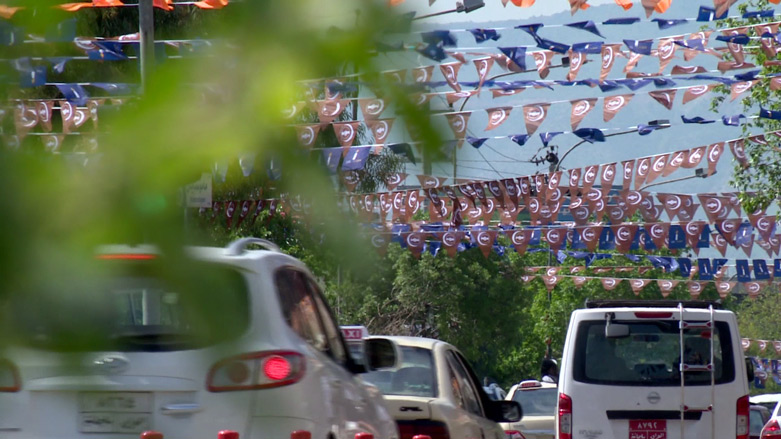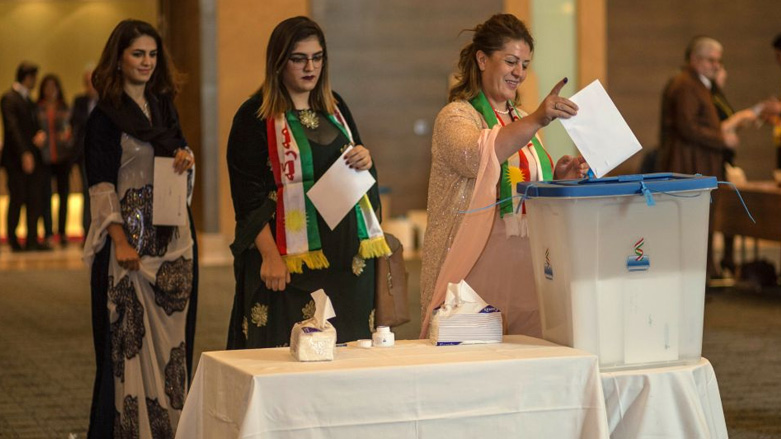Parties contest final results of Kurdistan election following winners’ approval

ERBIL (Kurdistan 24) – Following statements by the winning parties of the Kurdistan Region’s parliamentary elections welcoming the final results, trailing parties on Sunday rejected the outcome of the vote.
At midnight on Saturday, the electoral commission announced the official results of the regional parliamentary election. The Kurdistan Democratic Party (KDP) lead the polls by a large margin, securing 45 seats out of a total 111 seats available, followed by the Patriotic Union of Kurdistan (PUK) with 21 seats.
The parties who rejected the results are the Change Movement (Gorran), winner of 12 seats, New Generation, which won eight seats, and the Kurdistan Islamic Union (KIU), which belonged to the Toward Reform Coalition that won five.
“We reject the results,” Hakim Ubaid, a senior member of Gorran told Kurdistan 24 on Sunday.
“Similar to the Iraqi parliamentary elections, extensive fraud has been committed in this vote by the KDP and PUK,” Ubaid alleged.
In the outgoing parliament, Gorran had twice as many seats, 24, compared to their showing this election and the KIU alone had six.
“The Independent High Electoral and Referendum Commission [IHERC] has not been able to receive the backing of most of the commissioners” to validate the results and “has only achieved a simple majority,” KIU said in a statement on Sunday.
Kurdistan 24 previously learned that out of nine commissioners, five have approved the results.
New Generation, led by Shaswar Abdulwahid, a wealthy businessman and founder of Nalia Media and Radio, was recently established in Sulaimani and gained four seats in the May 12 Iraqi parliamentary elections. This would be their second time participating in an election.
“We, as the New Generation Movement, reject these results and… call on entities besides the two parties [PUK and KDP] to unify their political agenda and face this state of affairs,” the party said.
After a contested national election marred by widespread allegations of fraud and vote-rigging, the regional electoral commission opted to use a manual ballot-counting system rather than the electronic one from the Iraqi national elections to avoid criticisms.
Editing by Karzan Sulaivany

